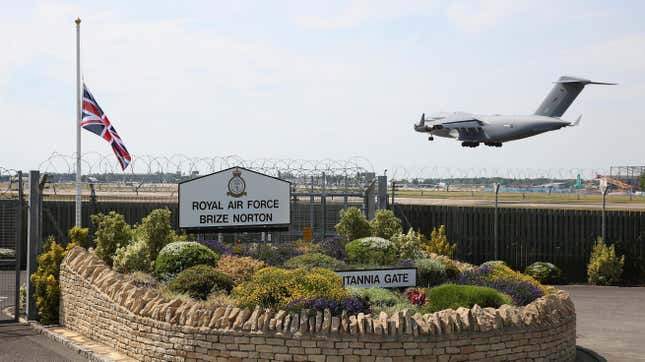
According to reports from SkyNews in the United Kingdom, the country’s largest Royal Air Force base—RAF Brize Norton—has ceased all incoming and outgoing flights as severe heat has allegedly caused the runway to melt.
Europe is currently in the throes of a severe heatwave, and an Air Force base in the United Kingdom is witnessing some of the harsher effects of these increased temperatures. News broke Monday that the runway at Royal Air Force Base, RAF Brize Norton, melted under the intense heat plaguing the area. We’re told that RAF Brize Norton has a Business Continuity Plan with contingencies for events like this, and incoming flights to the base may have to be sent to nearby locations.
“During this period of extreme temperature flight safety remains our top priority, so aircraft are using alternative airfields in line with a long established plan. This means there is no impact on RAF operations,” an RAF spokesperson said to Gizmodo in an email.
The current European heatwave is hitting the United Kingdom particularly hard. According to the BBC, it was 37.5 degrees Celsius (99.5 degrees Fahrenheit) this morning in Essex and London, making it the hottest day of the year so far. The Met Office is forecasting temperatures above 40 degrees Celsius (104 degrees Fahrenheit) in London on Tuesday, and has issued a rare Red Extreme heat warning for Monday and Tuesday—the office says that this is the first Red warning issued in its history. “The extreme heat we’re forecasting right now is absolutely unprecedented,” said Met Office Chief Executive Penny Endersby. The Met Office says that this is the first time it has forecasted 40 degree Celsius temperatures, and the previous record high temperature recorded was 38.7 degrees Celsius (101.66 degrees Fahrenheit) in 2019.
As climate change continues, so too will heatwaves, the effects of which will be exacerbated in places that may not be equipped for such lofty temperatures.